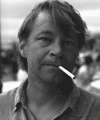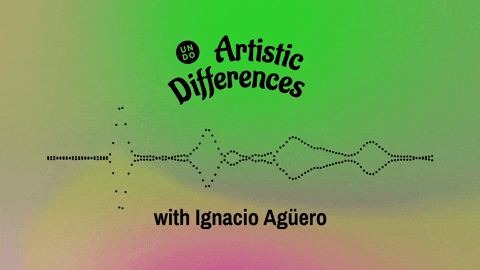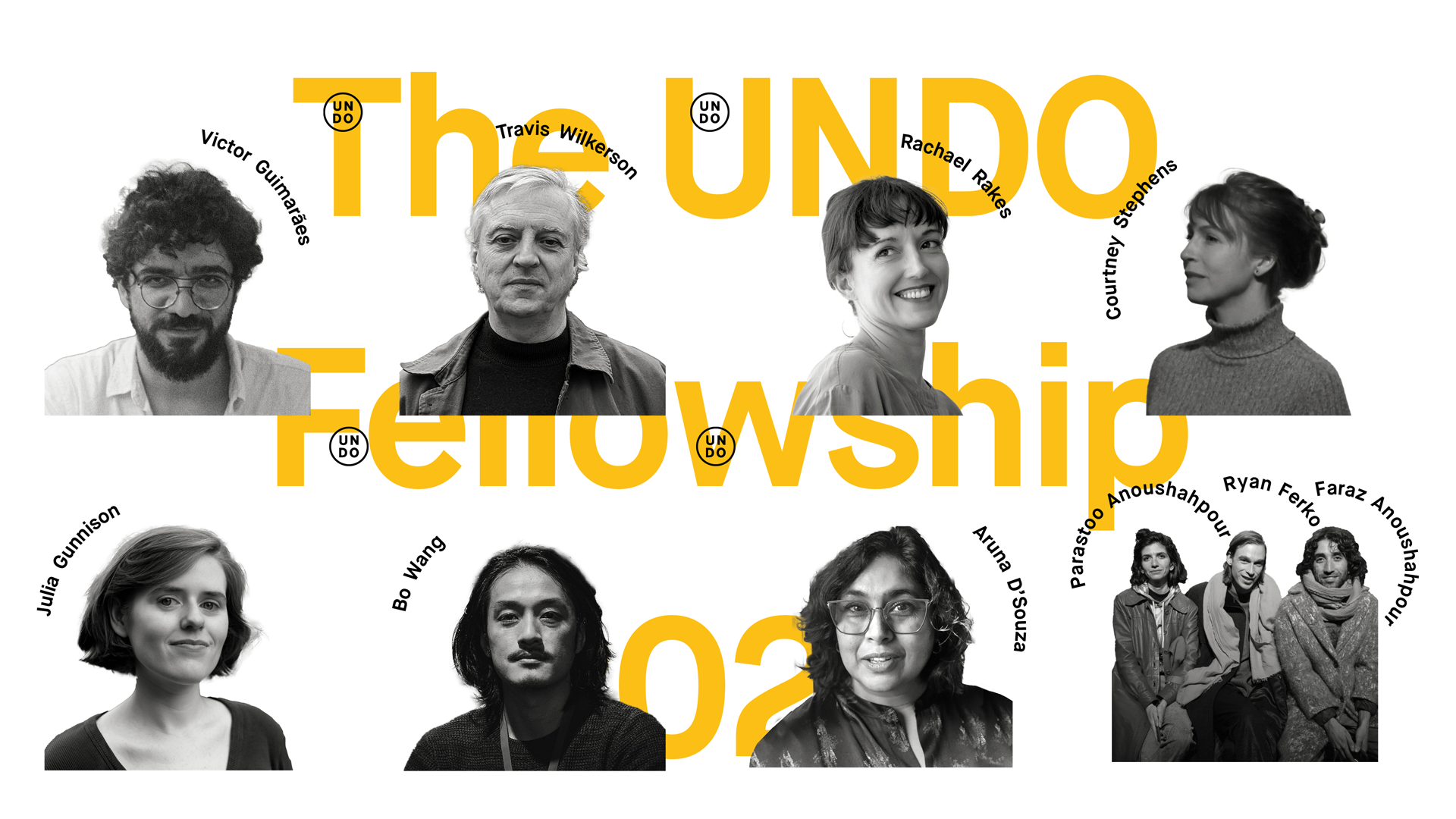Best known for his innovative, award-winning 2005 short Uso Justo, Coleman Miller has been making films and videos for over 25 years utilizing a variety of techniques including found footage, collage, and various mash-up experimentation based on whatever tools he’s had at his disposal. We are happy to present this long-overdue overview of Miller’s work.
“It always starts with Play. Especially working with found footage – it’s like being a five year old in a brand new sandbox. Or playing with blocks. You start mixing and matching things… just to see. Then maybe a leaf blows into the sandbox and you incorporate that. Soon you have a foundation and it all flows from there. The hardest part is getting up from the sandbox and saying ‘Done’. But really, any sandbox will do.” – Coleman Miller
“Coleman Miller is destined for admiration and great poverty.” – Isabella Rossellini
Program runtime is approximately 68 minutes — Surprise unannounced works possible
Step Off A Ten-Foot Platform With Your Clothes On by Coleman Miller USA, 1990, 7 minutes, 16 mm
While working as a printer in a film lab in San Francisco Miller, was able to use equipment most filmmakers didn’t even know existed. Obtaining special use of a continuous contact printer, which he used every day, was particularly inspiring. By manipulating found footage he was able to create a body of work that turned the medium of film back around on itself. Miller was able to invent many new printing techniques, which he continues to incorporate today. During these years, the film lab became a ten-year festival of experimentation and from it came the most consistent additions to his body of work.
In Step Off A Ten Foot Platform With Your Clothes On, Miller expounds his foray into found and experimental film by compiling which had been, until Uso Justo, his most successful and critically acclaimed work. Produced while Miller was still working for a San Francisco based film printer, once again we see Miller playing with materials directly available to him. During this time time, he was turning film around on itself in a purely visual way – showing the sprocketholes, edge numbers, dirt and frame lines, etc. Again we’ll see the use of contrapuntal sound in order to punctuate dramatic and often playful images. Miller also takes the time to examine what lies in between or, more appropriately, just hidden aspects of film. Long stretches of dirty black or white leader touched with color, usually an annoyance to the traditional viewer, display an entertaining dance of schmutz that is allowed to take the focus. Platform briefly introduces it’s visual styles and slowly allows them to progress into a spirited visual mash-up of his techniques. Ordinary images sifted thru Miller’s mental machine, like the little dog in the film, yanked to unreasonable visual extremes.Platform would go on to win numerous festival awards, be screened at the 1991 Sundance Film Festival, and become culled material for commercial exhibitions such as the 1992 MTV Music Video Awards and the closeding title sequences for MTV’s 1991 television show The Big Picture.
Fixated Whereabouts by Coleman Miller USA, 1983, 5 minutes, 16 mm
Deeply inspired by Bruce Conner’s Take The 5:10 To Dreamland, Miller’s initial dabbling into filmmaking shows natural mastery of his available tools. Shot simply with a super 8 camera, Miller’s exercises began to define the directions of his current work. What, upon first glance, appears to be the tired student project that pervade the novice class of experimental film, a deeper inspection reveals Miller’s creation of a bizarre and surreal world just around the corner from your house. Contrapuntal sound reverses commonly seen images, and simple experimental devices distract the viewer into provocative thought. San Francisco’s skyline watched out a window appeals to a strange unfulfilled longing, so it shouldn’t surprise the reader that the scene is shot from a postcard found in Miller’s hotel, years before he ever took up residence there. Please note the first display of existential angst. Every ordinary event, every car-ride or ballgame take on an otherworldly effect. An escalator, found sound, a mirror… all objects often overlooked, suddenly presented turned on their own ear. Fixated Whereabouts means what it suggests as Miller’s universe stops at a place, records what it sees, interprets the material with a clash of the surreal, and then punctuates with moments of fright and wonder.
Motion Pictures by Coleman Miller USA, 1996, 4 minutes, 16 mm
In Miller’s most abrupt work- Motion Pictures – he begins pursuit of new layering techniques with found and manipulated materials. Produced at Monaco Lab.
Minneapolis/St. Paul International Film Festival Trailer 1997
The Bony Orbit by Coleman Miller digital projection, USA 2010, 2 minutes, digital projection
The dry narration of an educational film brings forth surprising results as a couple surrenders to love.
What Gives by Coleman Miller
USA, 1994, 2 minutes, digital projection
The larf of What Gives introduces Miller’s playfulness, foreshadowing a common theme throughout the future of Miller’s work. Surreal, experimental slapstick executed to perfection. Again produced at Monaco Lab, with materials and tools at his disposal.
Kirk, we hardly knew ya by Coleman Miller USA, 1999, 12 minutes, 16 mm
Produced as an installation piece, ‘Kirk’ is the most basic of Miller’s work, never intended to be screened beyond that environment. But as we watch it today, the subject matter retains relevance. The pressures of business and technology barked out by the enigmatic Shatner, transposed with the inane pursuits of a culture that can’t understand why it should be bombed. Miller’s statement, though simple and cheaply produced, retains its’ humor in the light of such damning circumstance.
Take The L by Coleman Miller USA, 2006, 3 minutes, digital projection
Using his 8 year-old, consumer level 1-chip digital video camera, Miller dials in the controls to capture a frighteningly sharp commuter train trip. Using a technique available to almost any beginner level FCP user, he transcends the viewer into a widely familiar but deeply disorienting and hypnotic landscape. In watching the center, the viewer can only imagine the thrilling moment when, as a child, they first held a kaleidoscope up to the light. But looking out toward the edges, Take The L will subtly reveal it’s common subject matter and remind the viewer of its’ reality. Once again Miller takes the most mundane of activities and develops it into an explosion of kaleidoscopic visual beauty and playfulness. Miller once again delivers stimulating execution of the most basic technique driven to its’ edges.
Heaven by Coleman Miller USA, 2007, 3 minutes, digital video
Jon Nelson asked me to add some visuals to one of his audio mix cuts for a show in Minneapolis. I chose the one with Steve Martin talking about heaven. Of the two of those i really believe in Steve Martin.
Uso Justo by Coleman Miller USA, 2005, 22 minutes, digital projection
Miller’s first narrative creation is like nothing you have seen before. Or since. Uso Justo (roughly translated: “Fair Use”) is restructured completely from an obscure 1959 Mexican film. Miller reaches deep into this black and white melodrama with both hands and turns it inside out. When an experimental filmmaker arrives to shoot his next film in the fictional town of Uso Justo, things start getting strange. The townsfolk are both thrilled and confused by the sudden arrival of this mysterious artist. As the invisible filmmaker pulls the strings, the unfolding story proves to be existential and hilarious, intelligent and stupid.
”A laff a minute” –Bruce Conner
“Uso Justo is the most hilarious and mesmerizing film I have seen in years.” – Jonathan Caouette (Tarnation)
”Uso Justo is BRILLIANT!!! Fantastic! genius! Wonderful! marvelous! Fuckin’ Brilliant!!!” – Craig Baldwin (Sonic Outlaws, Tribulation 99)
Frank and Paula by Coleman Miller USA, 2009, 4 minutes, digital projection
The 1950 film noir classic D.O.A. is apparently in the public domain. Somebody hand me my e-scissors.
Hands Motherloade by Coleman Miller USA, 2002, 4 minutes, digital projection
I put this together when my computer was acting like shit and crashing frequently. Coincidentally this was right after i had gone to my grandfather’s house and picked up a bunch of old metal sections of heating pipes, elbow joints, washer’s, nut’s, bolts, handtools, etc. So when the computer would crash i would go out on the back porch to my buckets of metal and try twisting up some sculpture. And i began to realize how much I liked working with my hands again. It was such a breath of fresh air – much better i thought than staring at a monitor. At the same time i would be watching and rewatching old 16mm educational films and noticing how almost every one of these had a close shot of hands.
The human hand. What a great tool. And taken for granted.
 Coleman Miller (Creator/Writer/Director/Producer/Editor) has been making films for over 20 years. His films have won numerous awards on the festival circuit and his film Step Off a Ten Foot Platform With Your Clothes On screened at Sundance in 1991. He received his bachelor’s degree in film production from Southern Illinois University in 1983. He was recently awarded the 2005 IFP-MSP/McKnight Artist Fellowship for Filmmakers, received a Jerome Media Grant in 2001 and a Film Arts Foundation Grant in 1990.
Coleman Miller (Creator/Writer/Director/Producer/Editor) has been making films for over 20 years. His films have won numerous awards on the festival circuit and his film Step Off a Ten Foot Platform With Your Clothes On screened at Sundance in 1991. He received his bachelor’s degree in film production from Southern Illinois University in 1983. He was recently awarded the 2005 IFP-MSP/McKnight Artist Fellowship for Filmmakers, received a Jerome Media Grant in 2001 and a Film Arts Foundation Grant in 1990.
photo by Jon Haynes Photography | creative commons
Special thanks to Richard Hansen.







